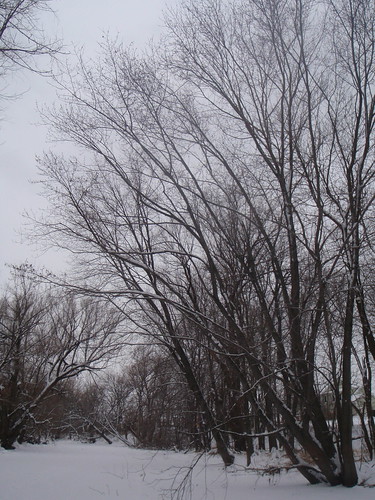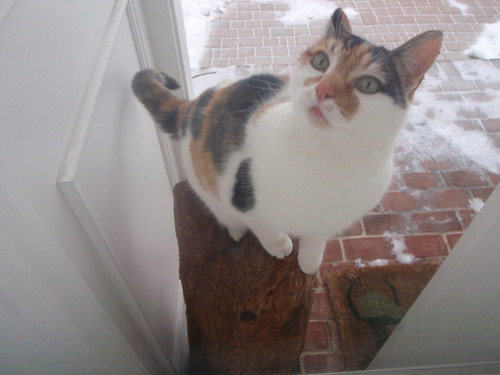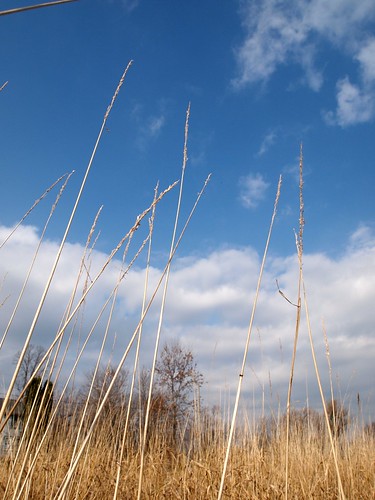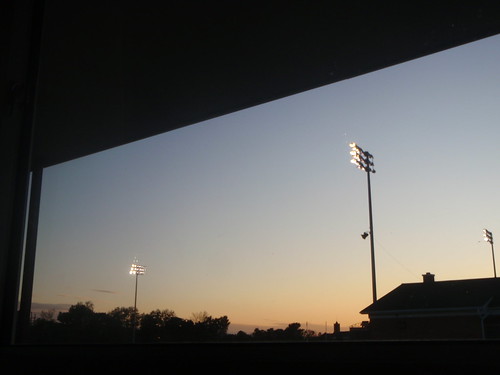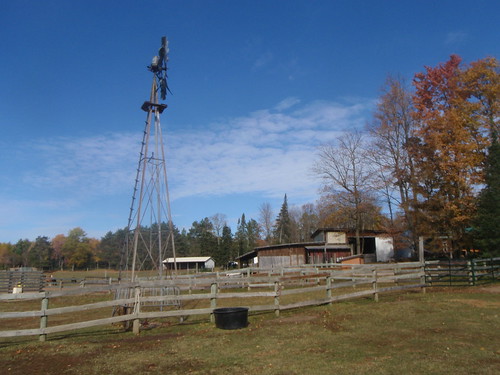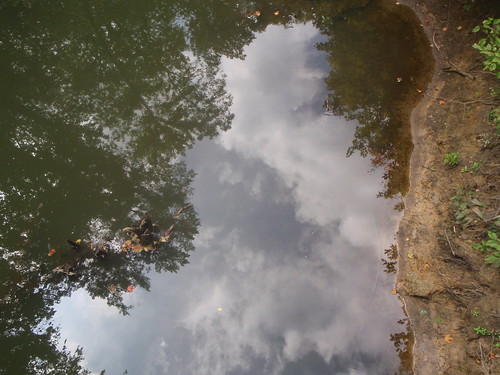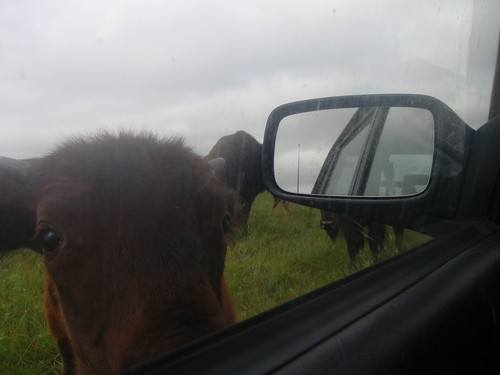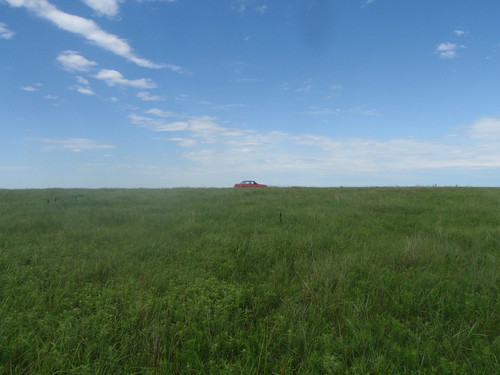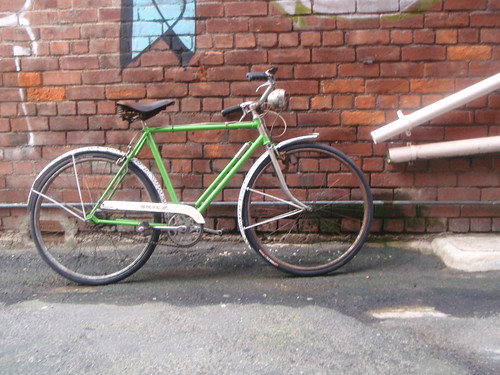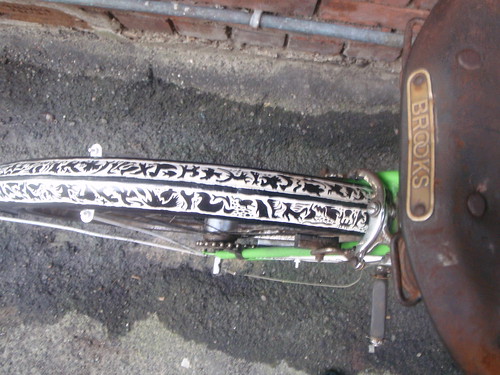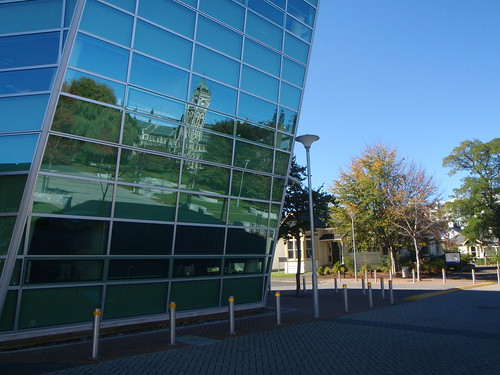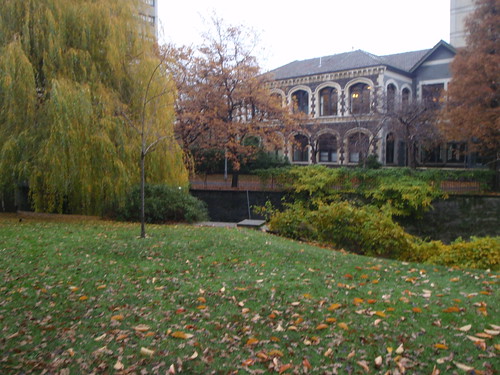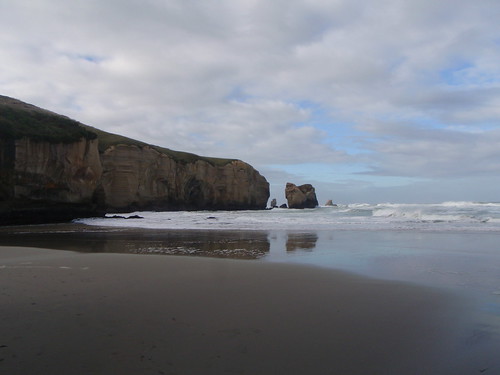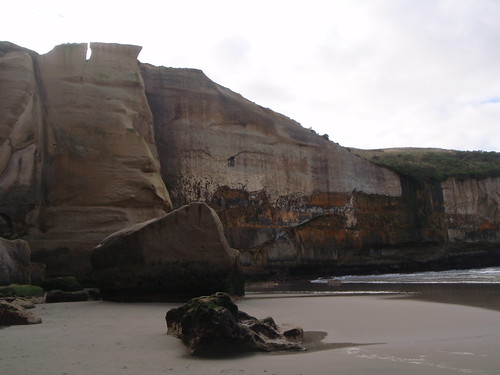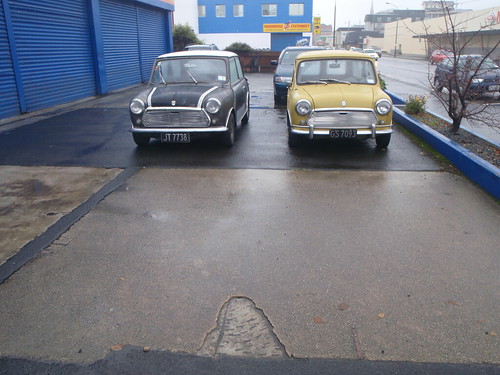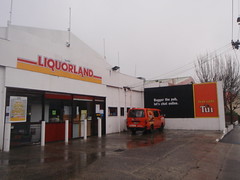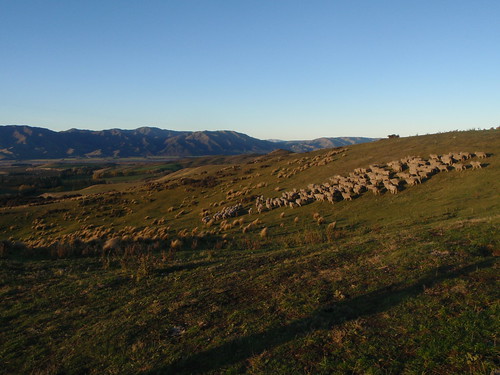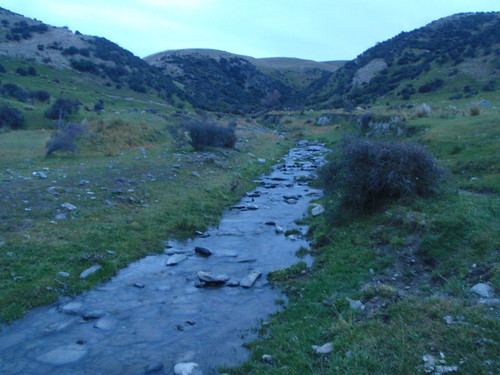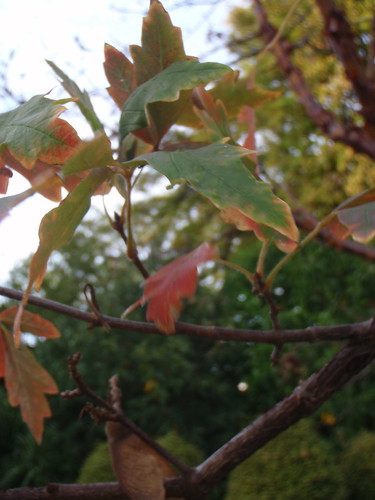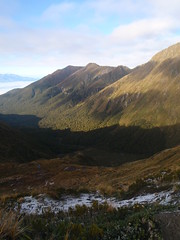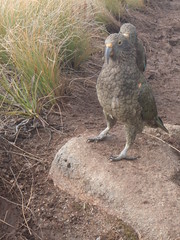Postscript
And some time make the time to drive out west
Into County Clare, along the Flaggy Shore,
In September or October, when the wind
And light are working off each other
So that the ocean on one side is wild
With foam and glitter, and inland among stones
The surface of a slate-grey lake is lit
By the earthed lightning of a flock of swans,
Their feathers roughed and ruffling, white on white,
Their fully grown headstrong-looking heads
Tucked or cresting or busy underwater.
Useless to think you'll park and capture it
More thoroughly. You are neither here nor there,
A hurry through which known and strange things pass
As big soft buffetings come at the car sideways
And catch the heart off guard and blow it open.
-Seamus Heaney
Pre-arranged post, I'm travelling.
30 December 2009
25 December 2009
23 December 2009
New Hampshire
1
When the loons cry,
The night seems blacker,
The water deeper.
Across the shore:
An eyelash charcoal
Fringe of pine trees.
2
The lake reflects
Indefinite pewter,
And intermittent thunder
Lets us know
The gods are arriving,
One valley over.
3
After the long,
Melancholy of the fall,
One longs for the crisp
Brass shout of winter--
The blaze of firewood,
The window's spill
Of parlor lamplight
Across the snow.
4
Flaring like a match
Dropped in a dry patch,
One sunset tells
The spectrum's story.
See the last hunter's
Flashlight dim
As he hurries home
To his lighted window.
-Howard Moss
100 posts in this here blog.
1
When the loons cry,
The night seems blacker,
The water deeper.
Across the shore:
An eyelash charcoal
Fringe of pine trees.
2
The lake reflects
Indefinite pewter,
And intermittent thunder
Lets us know
The gods are arriving,
One valley over.
3
After the long,
Melancholy of the fall,
One longs for the crisp
Brass shout of winter--
The blaze of firewood,
The window's spill
Of parlor lamplight
Across the snow.
4
Flaring like a match
Dropped in a dry patch,
One sunset tells
The spectrum's story.
See the last hunter's
Flashlight dim
As he hurries home
To his lighted window.
-Howard Moss
100 posts in this here blog.
19 December 2009
I just stumbled upon this website while trying to find an online copy of Wendell Berry's essay on Edward Abbey (in "What Are People For?") and I'm intrigued (essay doesn't appear to be available online, though, and I suppose I shouldn't be surprised).
"We come from different backgrounds, live in different places, and have divergent interests, but we’re convinced that scale, place, self-government, sustainability, limits, and variety are key terms with which any fruitful debate about our corporate future must contend. We invite you to read along, and perhaps join the discussion."
"We come from different backgrounds, live in different places, and have divergent interests, but we’re convinced that scale, place, self-government, sustainability, limits, and variety are key terms with which any fruitful debate about our corporate future must contend. We invite you to read along, and perhaps join the discussion."
16 December 2009
09 December 2009
from Strophes
I
Like a glass whose imprint
leaves a circular crown
on the tablecloth of the ocean
which canít be shouted down,
the sun has gone to another
hemisphere where none
but the fish in the water
are ever left alone.
VI
Only space spots self-interest
in a finger pointing afar,
and light has its swiftness
in an empty atmosphere.
So eyes receive their damage,
from how far one looks.
More than they do from old age
or from reading books.
VIII
The bleaker things are, for some reason.
the simpler. No more do you
crave for an intermission
like a fiery youth.
The light on the boards, in the stage wings,
grows dim. You walk out right
into the leaves' soft clapping,
into the U.S. night.
IX
Life's a freewheeling vendor:
occiput, penis, knee.
And geography blended
with time equals destiny.
Its power is learned of faster
if the stick drives it in.
You bow to the Fatal Sister
who simply loves to spin.
XI
Dearest, there are no unfortunates,
no living and no dead.
All's just a match of consonants,
on crooked legs, instead.
The swineherd exaggerated,
obviously, his role;
his pearl, however unheeded,
will outlast us all.
XIV
These lines are a doomed endeavor
to save something, to trace,
to turn around. But you never
lie in the same bed twice.
Not even if the chambermaid
forgets to change the sheets
this isn't Saturn, you won't
land from its ring on your feet.
XIX
These things will merge together
in the eyes of the crew
peering from their flying saucer
at the motley scene below.
So whatever their mission
is, I suppose it's best
we're apart and their vision
won't be put to the test.
XXIV
Here our perspective ends. A pity
that it's so. What extends
is just the winding plenty
of time, of redundant days;
gallops in blinkers of cities,
etc., to the finish in view;
piling up needless words of which
none is about you.
-Joseph Brodsky, 1978
I
Like a glass whose imprint
leaves a circular crown
on the tablecloth of the ocean
which canít be shouted down,
the sun has gone to another
hemisphere where none
but the fish in the water
are ever left alone.
VI
Only space spots self-interest
in a finger pointing afar,
and light has its swiftness
in an empty atmosphere.
So eyes receive their damage,
from how far one looks.
More than they do from old age
or from reading books.
VIII
The bleaker things are, for some reason.
the simpler. No more do you
crave for an intermission
like a fiery youth.
The light on the boards, in the stage wings,
grows dim. You walk out right
into the leaves' soft clapping,
into the U.S. night.
IX
Life's a freewheeling vendor:
occiput, penis, knee.
And geography blended
with time equals destiny.
Its power is learned of faster
if the stick drives it in.
You bow to the Fatal Sister
who simply loves to spin.
XI
Dearest, there are no unfortunates,
no living and no dead.
All's just a match of consonants,
on crooked legs, instead.
The swineherd exaggerated,
obviously, his role;
his pearl, however unheeded,
will outlast us all.
XIV
These lines are a doomed endeavor
to save something, to trace,
to turn around. But you never
lie in the same bed twice.
Not even if the chambermaid
forgets to change the sheets
this isn't Saturn, you won't
land from its ring on your feet.
XIX
These things will merge together
in the eyes of the crew
peering from their flying saucer
at the motley scene below.
So whatever their mission
is, I suppose it's best
we're apart and their vision
won't be put to the test.
XXIV
Here our perspective ends. A pity
that it's so. What extends
is just the winding plenty
of time, of redundant days;
gallops in blinkers of cities,
etc., to the finish in view;
piling up needless words of which
none is about you.
-Joseph Brodsky, 1978
02 December 2009
Not Ideas About the Thing But the Thing Itself
At the earliest ending of winter,
In March, a scrawny cry from outside
Seemed like a sound in his mind.
He knew that he heard it,
A bird's cry at daylight or before,
In the early March wind.
The sun was rising at six,
No longer a battered panache above snow . . .
It would have been outside.
It was not from the vast ventriloquism
Of sleep's faded papier mâché . . .
The sun was coming from outside.
That scrawny cry—it was
A chorister whose c preceded the choir.
It was part of the colossal sun,
Surrounded by its choral rings,
Still far away. It was like
A new knowledge of reality.
-Wallace Stevens, 1954
At the earliest ending of winter,
In March, a scrawny cry from outside
Seemed like a sound in his mind.
He knew that he heard it,
A bird's cry at daylight or before,
In the early March wind.
The sun was rising at six,
No longer a battered panache above snow . . .
It would have been outside.
It was not from the vast ventriloquism
Of sleep's faded papier mâché . . .
The sun was coming from outside.
That scrawny cry—it was
A chorister whose c preceded the choir.
It was part of the colossal sun,
Surrounded by its choral rings,
Still far away. It was like
A new knowledge of reality.
-Wallace Stevens, 1954
30 November 2009
25 November 2009
Fishing in the Keep of Silence
There is a hush now while the hills rise up
and God is going to sleep. He trusts the ship
of Heaven to take over and proceed beautifully
as he lies dreaming in the lap of the world.
He knows the owls will guard the sweetness
of the soul in their massive keep of silence,
looking out with eyes open or closed over
the length of Tomales Bay that the herons
conform to, whitely broad in flight, white
and slim in standing. God, who thinks about
poetry all the time, breathes happily as He
repeats to Himself: There are fish in the net,
lots of fish this time in the net of the heart.
-Linda Gregg
There is a hush now while the hills rise up
and God is going to sleep. He trusts the ship
of Heaven to take over and proceed beautifully
as he lies dreaming in the lap of the world.
He knows the owls will guard the sweetness
of the soul in their massive keep of silence,
looking out with eyes open or closed over
the length of Tomales Bay that the herons
conform to, whitely broad in flight, white
and slim in standing. God, who thinks about
poetry all the time, breathes happily as He
repeats to Himself: There are fish in the net,
lots of fish this time in the net of the heart.
-Linda Gregg
20 November 2009
18 November 2009
Retarded Artifact
Give me reasons not to be
oblivion, irony.
Like something in Wisconsin,
I am all the dirt I know.
Having come to in someone
else’s boredom, I’m alive—
and it’s an all-new boredom,
a boredom of cathedral
proportion. Empty as folk,
I just make up, make over
everything. Lately, I don’t
even want a piece of me.
-Graham Foust
Give me reasons not to be
oblivion, irony.
Like something in Wisconsin,
I am all the dirt I know.
Having come to in someone
else’s boredom, I’m alive—
and it’s an all-new boredom,
a boredom of cathedral
proportion. Empty as folk,
I just make up, make over
everything. Lately, I don’t
even want a piece of me.
-Graham Foust
17 November 2009
11 November 2009
For Sheridan
We only live between
before we are and what we were.
In the lost negative
you exist,
a smile, a cypher,
an old-fashioned face
in an old-fashioned hat.
Three ages in a flash:
the same child in the same picture,
he, I, you,
chockablock, one stamp
like mother's wedding silver--
gnome, fish, brute cherubic force.
We could see clearly
and all the same things
before the glass was hurt.
Past fifty, we learn with surprise and a sense
of suicidal absolution
that what we intended and failed
could never have happened--
and must be done better.
-Robert Lowell
We only live between
before we are and what we were.
In the lost negative
you exist,
a smile, a cypher,
an old-fashioned face
in an old-fashioned hat.
Three ages in a flash:
the same child in the same picture,
he, I, you,
chockablock, one stamp
like mother's wedding silver--
gnome, fish, brute cherubic force.
We could see clearly
and all the same things
before the glass was hurt.
Past fifty, we learn with surprise and a sense
of suicidal absolution
that what we intended and failed
could never have happened--
and must be done better.
-Robert Lowell
04 November 2009
31 October 2009
This post is about two things: food and music. If I thought I was clever, I might say food for the body and food for the soul (instead I'll just make an oblique reference to the possibility that I think I'm clever). Or maybe it's just about three things I like.
The first: soup. I think I've perfected a warm, vegetable-full soup to rival chicken noodle in comfort. I call it beans & barley, partly because that's precisely what's in it and partly in homage to one of my favorite places in Milwaukee. So here's the recipe--or maybe just the formula (all amounts are approximate--use ingredients in whatever ratio you like):
Soak dry beans (3/4 cup) overnight (I use some heirloom cranberry beans I got at the farmers' market in Madison, which is not to imply any sort of foodie snobbiness. But they are really delicious.).
Chop onions (2), garlic (3 cloves), and ginger-root (1 tablespoon) and saute in butter or olive oil until the onions are translucent. Add chopped carrots (3/4 pound) and celery (about as much in volume as there is carrot), the beans, and some pearl barley (1/2 cup) and chopped cilantro (1 tablespoon), and six or seven cups of water. Salt generously. Bring to a boil, and then let simmer until the beans are cooked through and the barley is tender, about an hour. Add some more chopped cilantro, the juice of one lemon, and some freshly ground pepper, and you're home free. It's nice with bread (I recommend any recipe from the King Arthur Flour website).
Second thing: The not-supergroup Monsters of Folk, specifically, and ushering, in the abstract. Last night I ushered for the Monsters of Folk concert in Chicago, which means I got to see a great show (with pretty prime seats) totally free, in exchange for arriving an hour early, dressing in black and white, and showing people to their seats. On Monsters of Folk: their C.D. is pretty swell, but the show was really fun because they played songs from all the members' oeuvres--a highlight was Bright Eyes' "The Bottom of Everything" with each member of Monsters of Folk taking a verse. Also, the lights were really, really good.
Third thing: The Life of the World To Come, the new album from The Mountain Goats. The songs are based on individual Bible verses, but they are neither religious nor not religious. What they are is real nice listening. My favorite is probably Deuteronomy 2:10, which is obscurely titled and about extinct animals.
p.s. Happy Halloween.
The first: soup. I think I've perfected a warm, vegetable-full soup to rival chicken noodle in comfort. I call it beans & barley, partly because that's precisely what's in it and partly in homage to one of my favorite places in Milwaukee. So here's the recipe--or maybe just the formula (all amounts are approximate--use ingredients in whatever ratio you like):
Soak dry beans (3/4 cup) overnight (I use some heirloom cranberry beans I got at the farmers' market in Madison, which is not to imply any sort of foodie snobbiness. But they are really delicious.).
Chop onions (2), garlic (3 cloves), and ginger-root (1 tablespoon) and saute in butter or olive oil until the onions are translucent. Add chopped carrots (3/4 pound) and celery (about as much in volume as there is carrot), the beans, and some pearl barley (1/2 cup) and chopped cilantro (1 tablespoon), and six or seven cups of water. Salt generously. Bring to a boil, and then let simmer until the beans are cooked through and the barley is tender, about an hour. Add some more chopped cilantro, the juice of one lemon, and some freshly ground pepper, and you're home free. It's nice with bread (I recommend any recipe from the King Arthur Flour website).
Second thing: The not-supergroup Monsters of Folk, specifically, and ushering, in the abstract. Last night I ushered for the Monsters of Folk concert in Chicago, which means I got to see a great show (with pretty prime seats) totally free, in exchange for arriving an hour early, dressing in black and white, and showing people to their seats. On Monsters of Folk: their C.D. is pretty swell, but the show was really fun because they played songs from all the members' oeuvres--a highlight was Bright Eyes' "The Bottom of Everything" with each member of Monsters of Folk taking a verse. Also, the lights were really, really good.
Third thing: The Life of the World To Come, the new album from The Mountain Goats. The songs are based on individual Bible verses, but they are neither religious nor not religious. What they are is real nice listening. My favorite is probably Deuteronomy 2:10, which is obscurely titled and about extinct animals.
p.s. Happy Halloween.
28 October 2009
Sketch in October
The towboat is freckled with rust. What's it doing here so far inland?
It is a heavy extinguished lamp in the cold.
But the trees have wild colors: signals to the other shore.
As if people wanted to be fetched.
On my way home I see mushrooms sprouting
------------------------------------up through the lawn.
They are the fingers, stretching for help, of someone
who has long sobbed to himself in the darkness down there.
We are the earth's.
-Tomas Transtromer, 1987
The towboat is freckled with rust. What's it doing here so far inland?
It is a heavy extinguished lamp in the cold.
But the trees have wild colors: signals to the other shore.
As if people wanted to be fetched.
On my way home I see mushrooms sprouting
------------------------------------up through the lawn.
They are the fingers, stretching for help, of someone
who has long sobbed to himself in the darkness down there.
We are the earth's.
-Tomas Transtromer, 1987
26 October 2009
22 October 2009
21 October 2009
Last week was a self-imposed week off, I guess.
Perseverance
I shall look at the grass
Till I obtain the degree
Of Doctor of Grass.
I shall look at the clouds
Till I become a Master
Of Clouds.
I shall walk beside the smoke
Till out of shame
The smoke returns to the flame
Of its beginning.
I shall walk beside all things
Till all things
Come to know me.
-Marin Sorescu
Perseverance
I shall look at the grass
Till I obtain the degree
Of Doctor of Grass.
I shall look at the clouds
Till I become a Master
Of Clouds.
I shall walk beside the smoke
Till out of shame
The smoke returns to the flame
Of its beginning.
I shall walk beside all things
Till all things
Come to know me.
-Marin Sorescu
07 October 2009
Like They Say
Underneath the tree on some
soft grass I sat, I
watched two happy
woodpeckers be dis-
turbed by my presence. And
why not, I thought to
myself, why
not.
-Robert Creeley
The Answer
Then what is the answer?- Not to be deluded by dreams.
To know that great civilizations have broken down into violence,
------and their tyrants come, many times before.
When open violence appears, to avoid it with honor or choose
------the least ugly faction; these evils are essential.
To keep one's own integrity, be merciful and uncorrupted
------and not wish for evil; and not be duped
By dreams of universal justice or happiness. These dreams will
------not be fulfilled.
To know this, and know that however ugly the parts appear
------the whole remains beautiful. A severed hand
Is an ugly thing and man dissevered from the earth and stars
------and his history... for contemplation or in fact...
Often appears atrociously ugly. Integrity is wholeness,
------the greatest beauty is
Organic wholeness, the wholeness of life and things, the divine beauty
------of the universe. Love that, not man
Apart from that, or else you will share man's pitiful confusions,
------or drown in despair when his days darken.
-Robinson Jeffers, 1935
Underneath the tree on some
soft grass I sat, I
watched two happy
woodpeckers be dis-
turbed by my presence. And
why not, I thought to
myself, why
not.
-Robert Creeley
The Answer
Then what is the answer?- Not to be deluded by dreams.
To know that great civilizations have broken down into violence,
------and their tyrants come, many times before.
When open violence appears, to avoid it with honor or choose
------the least ugly faction; these evils are essential.
To keep one's own integrity, be merciful and uncorrupted
------and not wish for evil; and not be duped
By dreams of universal justice or happiness. These dreams will
------not be fulfilled.
To know this, and know that however ugly the parts appear
------the whole remains beautiful. A severed hand
Is an ugly thing and man dissevered from the earth and stars
------and his history... for contemplation or in fact...
Often appears atrociously ugly. Integrity is wholeness,
------the greatest beauty is
Organic wholeness, the wholeness of life and things, the divine beauty
------of the universe. Love that, not man
Apart from that, or else you will share man's pitiful confusions,
------or drown in despair when his days darken.
-Robinson Jeffers, 1935
02 October 2009
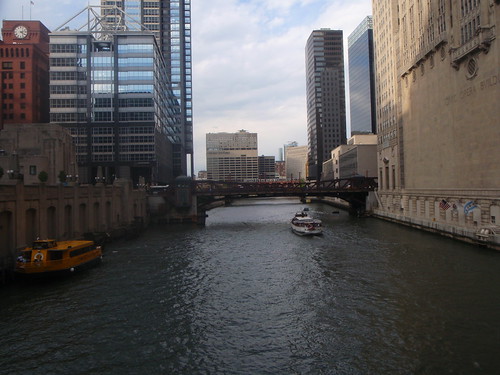
"Man was made to do his daily work with his muscles; but see him now, like a fly on flypaper, seated for eight hours, motionless at a desk. Fifteen minutes of exercise cannot make up for eight hours of absence. The human being was made to breathe the good air of nature, but what he breathes is an obscure compound of acids and coal tars. He was created for a living environment, but he dwells in a lunar world of stone, cement, asphalt, glass, cast iron, and steel. The trees wilt and blanch among sterile and blind stone facades. Cats and dogs disappear little by little from the city, going the way of the horse. Only rats and man remain to populate a dead world. Man was created to have room to move about in, to gaze into far distances, to live in rooms which, even when they were tiny, opened out on fields. See him now, enclosed by the rules and architectural necessities imposed by over-population in a twelve-by-twelve closet opening out on an anonymous world of city streets.
"What was once the abnormal has become the usual, standard condition of things. Even so, the human being is ill at east in this strange new environment, and the tension demanded of him weighs heavily on his life and being."
"What was once the abnormal has become the usual, standard condition of things. Even so, the human being is ill at east in this strange new environment, and the tension demanded of him weighs heavily on his life and being."
-"The Technological Society", Jacques Ellul
So what are people for? Is there any way to live without being in this "strange new environment", without having your life and being weighed upon? Or, to quote Lewis Hyde: should I go back to the university, or what?
30 September 2009
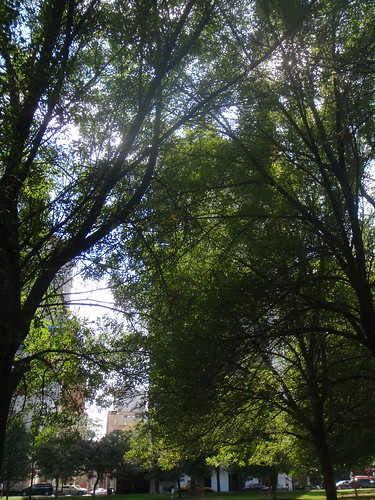
I believed:
a tree when kissed
would not lose its leaves --
leaves fall
from kissed
trees.
A river hugged
by a hand in love
would not flow away --
it flows away
into fog.
There are in my landscape
errors of colours and scents
yet always
always I love
what incessantly
changes.
As a golden ball
she runs before me:
approached again and again,
my beloved,
Earth.
-Tymoteusz Karpowicz
23 September 2009
Two or Three Incidents Recollected
An overturned cup of wine.
A stone path sailing in moonlight.
Where the blue grass is flattened,
an azalea flower is abandoned.
The eucalyptus wood swirls.
Stars above teem into a kaleidoscope.
On a rusty anchor,
eyes mirror the dizzy sky.
Holding up a book to shade the candle,
and with a finger in between the lips,
I sit in an eggshell quiet,
having a semitransparent dream.
-Shu Ting
An overturned cup of wine.
A stone path sailing in moonlight.
Where the blue grass is flattened,
an azalea flower is abandoned.
The eucalyptus wood swirls.
Stars above teem into a kaleidoscope.
On a rusty anchor,
eyes mirror the dizzy sky.
Holding up a book to shade the candle,
and with a finger in between the lips,
I sit in an eggshell quiet,
having a semitransparent dream.
-Shu Ting
19 September 2009
16 September 2009
14 September 2009
I'm taking a course on Jacques Ellul this semester, and every piece of reading gives me something to chew on, or something that bears repeating. An example of the first is this list; an example of the second is this quote (from this video): "When we oppose things which are too efficient we mustn't try to be even more efficient. For that will not turn out to be the most efficient way."
Efficiency comes up constantly in discussion for environmental studies courses--and what more can you say than that?
Efficiency comes up constantly in discussion for environmental studies courses--and what more can you say than that?
09 September 2009
Poem Written in a Copy of Beowulf
At various times, I have asked myself what reasons
moved me to study, while my night came down,
without particular hope of satisfaction,
the language of the blunt-tongued Anglo-Saxons.
Used up by the years, my memory
loses its grip on words that I have vainly
repeated and repeated. My life in the same way
weaves and unweaves its weary history.
Then I tell myself: it must be that the soul
has some secret, sufficient way of knowing
that it is immortal, that its vast, encompassing
circle can take in all, can accomplish all.
Beyond my anxiety, beyond this writing,
the universe waits, inexhaustible, inviting.
-Jorge Luis Borges
I feel compelled to say, that maybe it's not the universe, but it's God.
02 September 2009
Now that time seems all mine
Now that time seems all mine
and no one calls me for lunch or dinner,
now that I can stay to watch
how a cloud loosens and loses it color,
how a cat walks on the roof
in the immense luxury of a prowl, now
that what waits for me every day
is the unlimited length of a night
where there is no call and no longer a reason
to undress in a hurry to rest inside
the blinding sweetness of a body that waits for me,
now that the morning no longer has a beginning
and silently leaves me to my plans,
to all the cadences of my voice, now
suddenly I would like a prison.
-Patrizia Cavalli
Well, I guess I took a month's vacation. And now I'm back at school, in America.
30 July 2009
29 July 2009
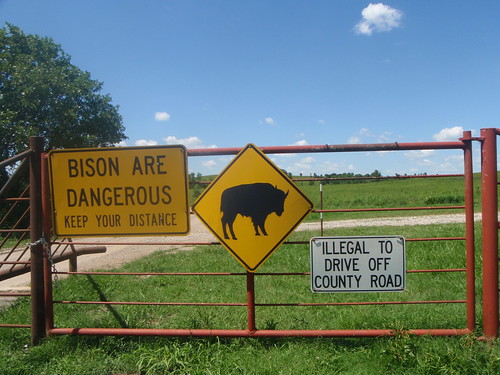
I praise the brightness of hammers pointing east
like the steel woodpeckers of the future,
and dozens of hinges opening brass wings,
and six new rakes shyly fanning their toes,
and bins of hooks glittering into bees,
and a rack of wrenches like the long bones of horses,
and mailboxes sowing rows of silver chapels,
and a company of plungers waiting for God
to claim their thin legs in their big shoes
and put them on and walk away laughing.
In a world not perfect but not bad either
let there be glue, glaze, gum and grabs,
caulk also, and hooks, shackles, cables, and slips,
and signs so spare a child may read them,
Men, Women, In, Out, No Parking, Beware the Dog.
In the right hands, they can work wonders.
-Nancy Willard, 1989
24 July 2009
22 July 2009
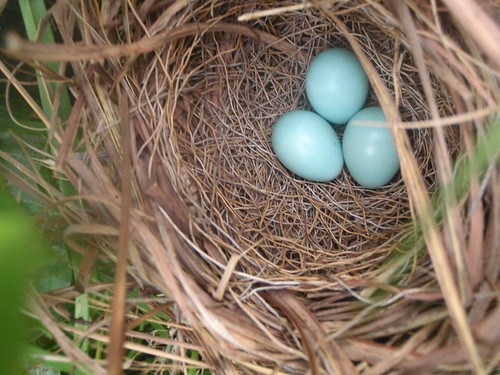
It is late at night, cold and damp
The air is filled with tobacco smoke.
My brain is worried and tired.
I pick up the encyclopedia,
The volume GIC to HAR,
It seems I have read everything in it,
So many other nights like this.
I sit staring empty-headed at the article Grosbeak,
Listening to the long rattle and pound
Of freight cars and switch engines in the distance.
Suddenly I remember
Coming home from swimming
In Ten Mile Creek,
Over the long moraine in the early summer evening,
My hair wet, smelling of waterweeds and mud.
I remember a sycamore in front of a ruined farmhouse,
And instantly and clearly the revelation
Of a song of incredible purity and joy,
My first rose-breasted grosbeak,
Facing the low sun, his body
Suffused with light.
I was motionless and cold in the hot evening
Until he flew away, and I went on knowing
In my twelfth year one of the great things
Of my life had happened.
Thirty factories empty their refuse in the creek.
On the parched lawns are starlings, alien and aggressive.
And I am on the other side of the continent
Ten years in an unfriendly city.
-Kenneth Rexroth
15 July 2009
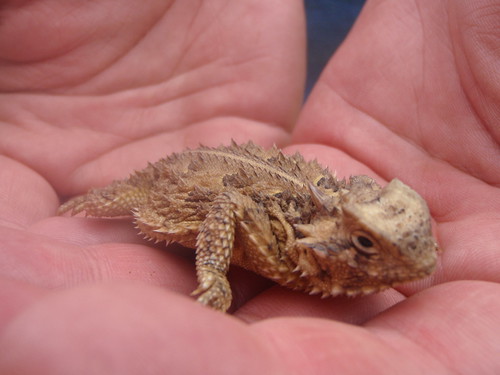
The creature gazes into openness with all
its eyes. But our eyes are
as if they were reversed, and surround it,
everywhere, like barriers against its free passage.
We know what is outside us from the animal’s
face alone: since we already turn
the young child round and make it look
backwards at what is settled, not that openness
that is so deep in the animal’s vision. Free from death.
We alone see that: the free creature
has its progress always behind it,
and God before it, and when it moves, it moves
in eternity, as streams do.
We never have pure space in front of us,
not for a single day, such as flowers open
endlessly into. Always there is world,
and never the Nowhere without the Not: the pure,
unwatched-over, that one breathes and
endlessly knows, without craving. As a child
loses itself sometimes, one with the stillness, and
is jolted back. Or someone dies and is it.
Since near to death one no longer sees death,
and stares ahead, perhaps with the large gaze of the creature.
Lovers are close to it, in wonder, if
the other were not always there closing off the view.....
As if through an oversight it opens out
behind the other......But there is no
way past it, and it turns to world again.
Always turned towards creation, we see
only a mirroring of freedom
dimmed by us. Or that an animal
mutely, calmly is looking through and through us.
This is what fate means: to be opposite,
and to be that and nothing else, opposite, forever.
If there was consciousness like ours
in the sure creature, that moves towards us
on a different track – it would drag us
round in its wake. But its own being
is boundless, unfathomable, and without a view
of its condition, pure as its outward gaze.
And where we see future it sees everything,
and itself in everything, and is healed for ever.
And yet in the warm waking creature
is the care and burden of a great sadness.
Since it too always has within it what often
overwhelms us – a memory,
as if what one is pursuing now was once
nearer, truer, and joined to us
with infinite tenderness. Here all is distance,
there it was breath. Compared to that first home
the second one seems ambiguous and uncertain.
O bliss of little creatures
that stay in the womb that carried them forever:
O joy of the midge that can still leap within,
even when it is wed: since womb is all.
And see the half-assurance of the bird,
almost aware of both from its inception,
as if it were the soul of an Etruscan,
born of a dead man in a space
with his reclining figure as the lid.
And how dismayed anything is that has to fly,
and leave the womb. As if it were
terrified of itself, zig-zagging through the air, as a crack
runs through a cup. As the track
of a bat rends the porcelain of evening.
And we: onlookers, always, everywhere,
always looking into, never out of, everything.
It fills us. We arrange it. It collapses.
We arrange it again, and collapse ourselves.
Who has turned us round like this, so that,
whatever we do, we always have the aspect
of one who leaves? Just as they
will turn, stop, linger, for one last time,
on the last hill, that shows them all their valley - ,
so we live, and are always taking leave.
-from The Duino Elegies, Rainer Maria Rilke, 1922
08 July 2009
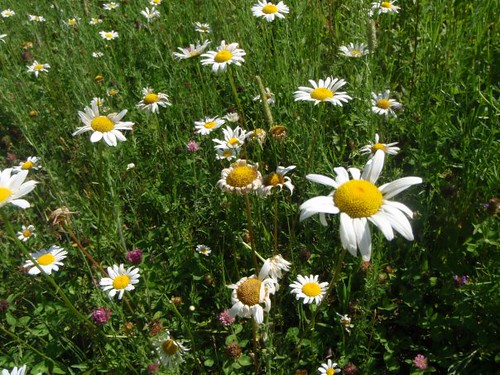
What I want is
Enough money
To have what I want
What I want is
My own hill
And beneath that hill
A pond
And in the pond a lazy
Bass or two
And duck feathers
Resting on the mud
Of the shore
Between the hill
And mud a patch
Of grass where I
Can lie and count
My seven trees
My seven clouds
And count the coyotes
Coming down the hill
To drink
Coyote 1 Coyote 2
-C. G. Hanzlicek, 1977
02 July 2009
Song for the Deer and Myself to Return On
This morning when I looked out the roof window
before dawn and a few stars were still caught
in the fragile weft of ebony night
I was overwhelmed. I sang the song Louis taught me:
a song to call the deer in Creek, when hunting,
and I am certainly hunting something as magic as deer
in this city far from the hammock of my mother's belly.
It works, of course, and deer came into this room
and wondered at finding themselves
in a house near downtown Denver.
Now the deer and I are trying to figure out a song
to get them back, to get all of us back,
because if it works I'm going with them.
And it's too early to call Louis
and nearly too late to go home.
-Joy Harjo, 1990
I wouldn't say it's too late to go home, for me, but what do I know? I'd say I'm there, but it's a hard word to define. Though, speaking of deer in the room--yesterday we had a bird in the house, fledgling (starling? near as I can figure). Caught it in a towel, let it out the window.
I very nearly forgot today was Wednesday, and I remembered now, when it's technically Thursday--but I haven't slept yet, so it's still Wednesday to me. Some grace, from anyone who still reads this.
23 June 2009
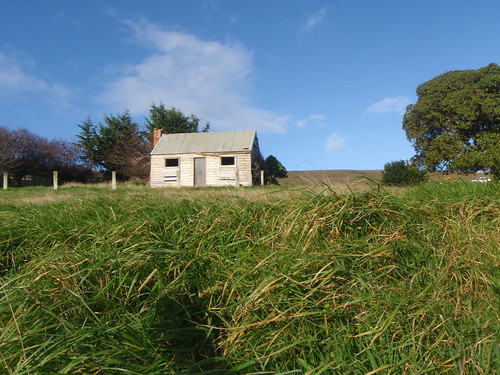
From a Plane
Green water of lagoons,
brown water of a great river
sunning its muscles along intelligent
rectangular swathes or
other brown, other green,
alluvial silvers.
----------------Always air
looked down through, gives
a reclamation of order, re-
visioning solace: the great body
not torn apart, though raked and raked
by our claws--
-Denise Levertov
This morning I woke up and made tynne pannekake for myself and flatmate Sandra, and finished the milk in a cup of chai, and thought "This is the part where I leave." I've explored New Zealand by foot, boat, plane, bus, car, bicycle, train...and tomorrow it's time to get on another plane, and another and another, and fly on home.
So I guess that's all.
Green water of lagoons,
brown water of a great river
sunning its muscles along intelligent
rectangular swathes or
other brown, other green,
alluvial silvers.
----------------Always air
looked down through, gives
a reclamation of order, re-
visioning solace: the great body
not torn apart, though raked and raked
by our claws--
-Denise Levertov
This morning I woke up and made tynne pannekake for myself and flatmate Sandra, and finished the milk in a cup of chai, and thought "This is the part where I leave." I've explored New Zealand by foot, boat, plane, bus, car, bicycle, train...and tomorrow it's time to get on another plane, and another and another, and fly on home.
So I guess that's all.
22 June 2009
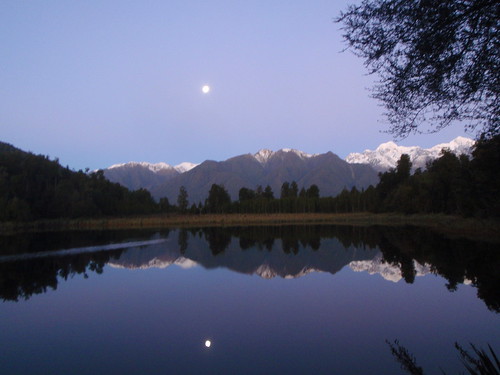
Today I took my last exams: marine ecology this morning, and earth and ocean science this afternoon, following up on environmental physiology last Thursday and genetics, a week ago today. Exams here are a lot different; they're proctored, like the SAT or the ACT, by old people who will follow you to the bathroom should you need to go. There's a fundamental but not necessarily inexplicable lack of trust--I didn't bring ID to my first exam, and they had to "perform an identity check" on me, presumably checking the database with our ID photos.
Now, I guess, that part's over, and all that's left is packing up, and cleaning up. Wow.
Now, I guess, that part's over, and all that's left is packing up, and cleaning up. Wow.
19 June 2009
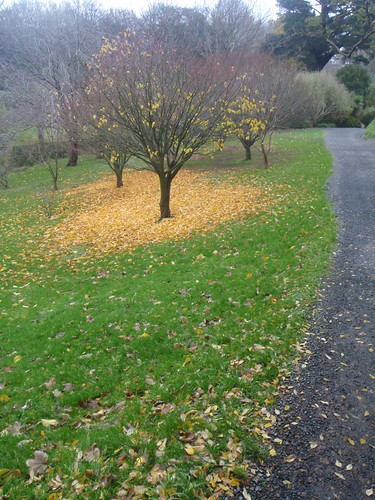
16 June 2009
The Far Field
I.
I dream of journeys repeatedly:
Of flying like a bat deep into a narrowing tunnel
Of driving alone, without luggage, out a long peninsula,
The road lined with snow-laden second growth,
A fine dry snow ticking the windshield,
Alternate snow and sleet, no on-coming traffic,
And no lights behind, in the blurred side-mirror,
The road changing from glazed tarface to a rubble of stone,
Ending at last in a hopeless sand-rut,
Where the car stalls,
Churning in a snowdrift
Until the headlights darken.
II.
At the field's end, in the corner missed by the mower,
Where the turf drops off into a grass-hidden culvert,
Haunt of the cat-bird, nesting-place of the field-mouse,
Not too far away from the ever-changing flower-dump,
Among the tin cans, tires, rusted pipes, broken machinery, --
One learned of the eternal;
And in the shrunken face of a dead rat, eaten by rain and ground-beetles
(I found in lying among the rubble of an old coal bin)
And the tom-cat, caught near the pheasant-run,
Its entrails strewn over the half-grown flowers,
Blasted to death by the night watchman.
I suffered for young birds, for young rabbits caught in the mower,
My grief was not excessive.
For to come upon warblers in early May
Was to forget time and death:
How they filled the oriole's elm, a twittering restless cloud, all one morning,
And I watched and watched till my eyes blurred from the bird shapes, --
Cape May, Blackburnian, Cerulean, --
Moving, elusive as fish, fearless,
Hanging, bunched like young fruit, bending the end branches,
Still for a moment,
Then pitching away in half-flight,
Lighter than finches,
While the wrens bickered and sang in the half-green hedgerows,
And the flicker drummed from his dead tree in the chicken-yard.
-- Or to lie naked in sand,
In the silted shallows of a slow river,
Fingering a shell,
Thinking:
Once I was something like this, mindless,
Or perhaps with another mind, less peculiar;
Or to sink down to the hips in a mossy quagmire;
Or, with skinny knees, to sit astride a wet log,
Believing:
I'll return again,
As a snake or a raucous bird,
Or, with luck, as a lion.
I learned not to fear infinity,
The far field, the windy cliffs of forever,
The dying of time in the white light of tomorrow,
The wheel turning away from itself,
The sprawl of the wave,
The on-coming water.
III.
The river turns on itself,
The tree retreats into its own shadow.
I feel a weightless change, a moving forward
As of water quickening before a narrowing channel
When banks converge, and the wide river whitens;
Or when two rivers combine, the blue glacial torrent
And the yellowish-green from the mountainy upland, --
At first a swift rippling between rocks,
Then a long running over flat stones
Before descending to the alluvial plane,
To the clay banks, and the wild grapes hanging from the elmtrees.
The slightly trembling water
Dropping a fine yellow silt where the sun stays;
And the crabs bask near the edge,
The weedy edge, alive with small snakes and bloodsuckers, --
I have come to a still, but not a deep center,
A point outside the glittering current;
My eyes stare at the bottom of a river,
At the irregular stones, iridescent sandgrains,
My mind moves in more than one place,
In a country half-land, half-water.
I am renewed by death, thought of my death,
The dry scent of a dying garden in September,
The wind fanning the ash of a low fire.
What I love is near at hand,
Always, in earth and air.
IV.
The lost self changes,
Turning toward the sea,
A sea-shape turning around, --
An old man with his feet before the fire,
In robes of green, in garments of adieu.
A man faced with his own immensity
Wakes all the waves, all their loose wandering fire.
The murmur of the absolute, the why
Of being born falls on his naked ears.
His spirit moves like monumental wind
That gentles on a sunny blue plateau.
He is the end of things, the final man.
All finite things reveal infinitude:
The mountain with its singular bright shade
Like the blue shine on freshly frozen snow,
The after-light upon ice-burdened pines;
Odor of basswood on a mountain-slope,
A scent beloved of bees;
Silence of water above a sunken tree :
The pure serene of memory in one man, --
A ripple widening from a single stone
Winding around the waters of the world.
-Theodore Roethke
I.
I dream of journeys repeatedly:
Of flying like a bat deep into a narrowing tunnel
Of driving alone, without luggage, out a long peninsula,
The road lined with snow-laden second growth,
A fine dry snow ticking the windshield,
Alternate snow and sleet, no on-coming traffic,
And no lights behind, in the blurred side-mirror,
The road changing from glazed tarface to a rubble of stone,
Ending at last in a hopeless sand-rut,
Where the car stalls,
Churning in a snowdrift
Until the headlights darken.
II.
At the field's end, in the corner missed by the mower,
Where the turf drops off into a grass-hidden culvert,
Haunt of the cat-bird, nesting-place of the field-mouse,
Not too far away from the ever-changing flower-dump,
Among the tin cans, tires, rusted pipes, broken machinery, --
One learned of the eternal;
And in the shrunken face of a dead rat, eaten by rain and ground-beetles
(I found in lying among the rubble of an old coal bin)
And the tom-cat, caught near the pheasant-run,
Its entrails strewn over the half-grown flowers,
Blasted to death by the night watchman.
I suffered for young birds, for young rabbits caught in the mower,
My grief was not excessive.
For to come upon warblers in early May
Was to forget time and death:
How they filled the oriole's elm, a twittering restless cloud, all one morning,
And I watched and watched till my eyes blurred from the bird shapes, --
Cape May, Blackburnian, Cerulean, --
Moving, elusive as fish, fearless,
Hanging, bunched like young fruit, bending the end branches,
Still for a moment,
Then pitching away in half-flight,
Lighter than finches,
While the wrens bickered and sang in the half-green hedgerows,
And the flicker drummed from his dead tree in the chicken-yard.
-- Or to lie naked in sand,
In the silted shallows of a slow river,
Fingering a shell,
Thinking:
Once I was something like this, mindless,
Or perhaps with another mind, less peculiar;
Or to sink down to the hips in a mossy quagmire;
Or, with skinny knees, to sit astride a wet log,
Believing:
I'll return again,
As a snake or a raucous bird,
Or, with luck, as a lion.
I learned not to fear infinity,
The far field, the windy cliffs of forever,
The dying of time in the white light of tomorrow,
The wheel turning away from itself,
The sprawl of the wave,
The on-coming water.
III.
The river turns on itself,
The tree retreats into its own shadow.
I feel a weightless change, a moving forward
As of water quickening before a narrowing channel
When banks converge, and the wide river whitens;
Or when two rivers combine, the blue glacial torrent
And the yellowish-green from the mountainy upland, --
At first a swift rippling between rocks,
Then a long running over flat stones
Before descending to the alluvial plane,
To the clay banks, and the wild grapes hanging from the elmtrees.
The slightly trembling water
Dropping a fine yellow silt where the sun stays;
And the crabs bask near the edge,
The weedy edge, alive with small snakes and bloodsuckers, --
I have come to a still, but not a deep center,
A point outside the glittering current;
My eyes stare at the bottom of a river,
At the irregular stones, iridescent sandgrains,
My mind moves in more than one place,
In a country half-land, half-water.
I am renewed by death, thought of my death,
The dry scent of a dying garden in September,
The wind fanning the ash of a low fire.
What I love is near at hand,
Always, in earth and air.
IV.
The lost self changes,
Turning toward the sea,
A sea-shape turning around, --
An old man with his feet before the fire,
In robes of green, in garments of adieu.
A man faced with his own immensity
Wakes all the waves, all their loose wandering fire.
The murmur of the absolute, the why
Of being born falls on his naked ears.
His spirit moves like monumental wind
That gentles on a sunny blue plateau.
He is the end of things, the final man.
All finite things reveal infinitude:
The mountain with its singular bright shade
Like the blue shine on freshly frozen snow,
The after-light upon ice-burdened pines;
Odor of basswood on a mountain-slope,
A scent beloved of bees;
Silence of water above a sunken tree :
The pure serene of memory in one man, --
A ripple widening from a single stone
Winding around the waters of the world.
-Theodore Roethke
10 June 2009
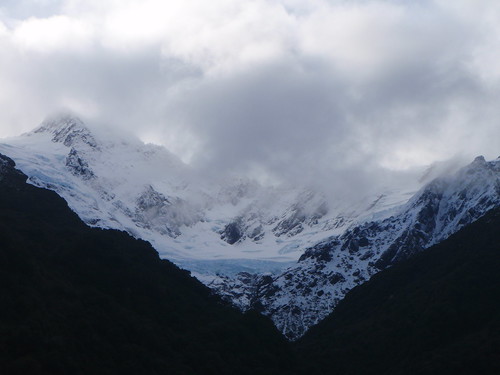
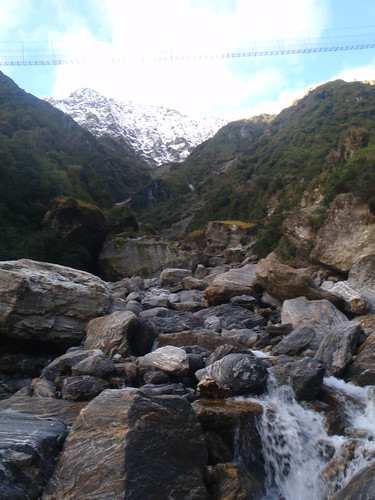
09 June 2009
Mom (hi Mom) asked for a happy poem; or asked me if I read any. This is one, I think.
Some Things The World Gave
1
Times in the morning early
when it rained and the long gray
buildings came forward from darkness
offering their windows for light.
2
Evenings out there on the plains
when sunset donated farms
that yearned so far to the west that the world
centered there and bowed down.
3
A teacher at a country school
walking home past a great marsh
where ducks came gliding in --
she saw the boy out hunting and waved.
4
Silence on a hill where the path ended
and then the forest below
moving in one long whisper
as evening touched the leaves.
5
Shelter in winter that day --
a storm coming, but in the lee
of an island in a cover with friends --
oh, little bright cup of sun.
-Mary Oliver
Some Things The World Gave
1
Times in the morning early
when it rained and the long gray
buildings came forward from darkness
offering their windows for light.
2
Evenings out there on the plains
when sunset donated farms
that yearned so far to the west that the world
centered there and bowed down.
3
A teacher at a country school
walking home past a great marsh
where ducks came gliding in --
she saw the boy out hunting and waved.
4
Silence on a hill where the path ended
and then the forest below
moving in one long whisper
as evening touched the leaves.
5
Shelter in winter that day --
a storm coming, but in the lee
of an island in a cover with friends --
oh, little bright cup of sun.
-Mary Oliver
05 June 2009
03 June 2009
Self Portrait at Twenty Years
I set off, I took up the march and never knew
where it might take me. I went full of fear,
my stomach dropped, my head was buzzing:
I think it was the icy wind of the dead.
I don't know. I set off, I thought it was a shame
to leave so soon, but at the same time
I heard that mysterious and convincing call.
You either listen or you don't, and I listened
and almost burst out crying: a terrible sound,
born on the air and in the sea.
A sword and shield. And then,
despite the fear, I set off, I put my cheek
against death's cheek.
And it was impossible to close my eyes and miss seeing
that strange spectacle, slow and strange,
though fixed in such a swift reality:
thousands of guys like me, baby-faced
or bearded, but Latin American, all of us,
brushing cheeks with death.
-Roberto Bolaño
I set off, I took up the march and never knew
where it might take me. I went full of fear,
my stomach dropped, my head was buzzing:
I think it was the icy wind of the dead.
I don't know. I set off, I thought it was a shame
to leave so soon, but at the same time
I heard that mysterious and convincing call.
You either listen or you don't, and I listened
and almost burst out crying: a terrible sound,
born on the air and in the sea.
A sword and shield. And then,
despite the fear, I set off, I put my cheek
against death's cheek.
And it was impossible to close my eyes and miss seeing
that strange spectacle, slow and strange,
though fixed in such a swift reality:
thousands of guys like me, baby-faced
or bearded, but Latin American, all of us,
brushing cheeks with death.
-Roberto Bolaño
02 June 2009
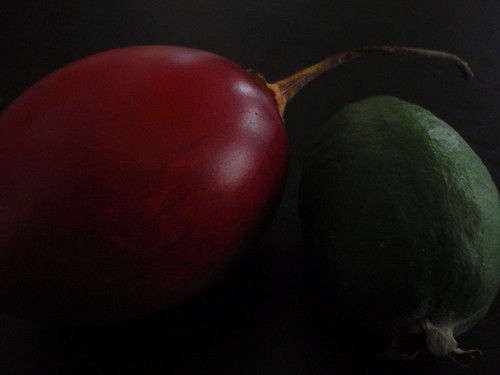
Not quite Edward Weston.
Since I've been here, I've made a rule about buying any fruit I don't recognize at the grocery store, that I have to. The red one is a tomarillo (not to be confused with a tomatillo), the green one is a feijoa. I don't really know how to describe what they taste like, but you eat both of them by cutting them open and scooping out the flesh (I had to google that).
01 June 2009
26 May 2009
Listen, the Fish as They Move
for Kevin Coates
Listen, the fish as they move
from rock to weeds, and from
weeds back to rock--passing
through drifts of coldness--
they do not wince and recoil
when the crow descends upon circles
they start as they break
the surface and yawn at the sun.
Listen, listen beyond the call
of flying fox that has clung
to your mind since nightfall and prayer:
back to the music of ocean
and the honeyeaters in the brushes.
Cries, singular and many,
surround these fish--but they only
stare, dumb and spawning, return
through the dark current of rivers
to shallow clear beginnings.
Ignorant of the flooded gorges in our minds
they return--ignorant of blasphemy,
as each one yawns to swallow the sun.
-Peter Skrzynecki, 1970
for Kevin Coates
Listen, the fish as they move
from rock to weeds, and from
weeds back to rock--passing
through drifts of coldness--
they do not wince and recoil
when the crow descends upon circles
they start as they break
the surface and yawn at the sun.
Listen, listen beyond the call
of flying fox that has clung
to your mind since nightfall and prayer:
back to the music of ocean
and the honeyeaters in the brushes.
Cries, singular and many,
surround these fish--but they only
stare, dumb and spawning, return
through the dark current of rivers
to shallow clear beginnings.
Ignorant of the flooded gorges in our minds
they return--ignorant of blasphemy,
as each one yawns to swallow the sun.
-Peter Skrzynecki, 1970
23 May 2009
19 May 2009

I have walked out in rain -- and back in rain.
I have outwalked the furthest city light.
I have looked down the saddest city lane.
I have passed by the watchman on his beat
And dropped my eyes, unwilling to explain.
I have stood still and stopped the sound of feet
When far away an interrupted cry
Came over houses from another street,
But not to call me back or say good-bye;
And further still at an unearthly height,
One luminary clock against the sky
Proclaimed the time was neither wrong nor right.
I have been one acquainted with the night.
-Robert Frost, 1928
I know I did Robert Frost already, but this is one of many Robert Frost poems that I have partially memorized, and the line "I have walked out in rain--and back in rain" kept coming into my head because of the weather here. Yesterday I woke up and the sky was blue without a cloud in sight, and I put some clothes out on the line because our dryer just seems to make things warm and keep them moist. When I got out of my lecture, the sky was uniformly grey and it was beginning to rain. Last night, the wind and rain were beating outside--and this morning, our front step was covered with a thin layer of grainy hale.
The food I've been eating is obviously not in line with the food you want to eat in the Northern hemisphere right now, but here are some recipes anyway. The first one is my own; the second is adapted (heavily) from the one on the back of the cornmeal box, and muffins instead of bread because we have no sort of workable bread/brownie/cake pan (but three muffin tins). I'm pretty sure the chili is vegan, if you use oil instead of butter for the sauteing and don't put any cheese in it (which would be sad)--but that's probably not relevant, because I don't think I know any vegans.
Beans & Rice Chili
Soak 1/3 cup dried black (turtle) beans for six hours in cold water; change the water (beans should be covered with 1-2 inches of water) and simmer 1-1 ½ hours, covered, until beans are soft. (You could probably just use a can of black beans with the liquid, but they don't sell canned black beans here.)
Heat butter or oil over medium heat in a saucepan. Add half an onion and 2 cloves garlic, minced; simmer until onion begins to soften and is becoming translucent.
Add three stalks chopped celery and 1 tablespoon chopped cilantro, stir and cook until cilantro is fragrent.
Add ½ cup long-grained brown rice, stir to coat. Add two chopped tomatoes, beans with cooking water, and 1-2 cups of water.
Bring to a boil, and add 2-3 teaspoons cumin, ½ teaspoon cocoa powder, ½ teaspoon cinnamon, 1 tablespoon brown suger, ¼ teaspoon cayenne pepper (or to taste), and salt and pepper to taste. (This is really not spicy at all, so you may want to add chili powder and/or jalapenos).
Simmer, covered, 30 minutes or until rice is edible. Add a further tablespoon of chopped cilantro prior to serving.
Serves 2-3; serve with grated cheddar cheese and sour cream, or corn muffins.
Corn Muffins
Combine 2 teaspoon baking powder, 1 cup of fine yellow cornmeal, 1 teaspoon salt and 2 tablespoons sugar.
Add ¼ cup of oil, a little less than 1/3 cup of heavy cream, 2 eggs and 1 ½ teaspoons lemon juice (mixture should be mealy, neither dry nor runny, a little stiff). Alternatively, substitute buttermilk or sour cream for lemon juice and cream.
Divide between 6 greased muffin cups; bake 15-18 minutes at 200ºC/392ºF.
17 May 2009
14 May 2009
What I learned this week:
That, when New Zealand was covered with ocean, there were 1.5-meter tall penguins swimming around. That they've found fossils of amphibious whales the size of sheep in the Himalayas.
That fjords are an estuarine ecosystem, but because they're protected from wave action, instead of mixing the layers of fresh and salt water remain distinct, which can effectively trap marine organisms in the fjord, making them biological islands.
That the dolphins in New Zealand's fjords are some of the only ones in the world who rely on fish nurtured in kelp beds for their diets; they found this out by isotope-tracking bits of the dolphin's skin to determine where they get their carbon from.
That there's a giant prehistoric turtle named after Terry Pratchett (Terrypratchetti, as I understand).
That a researcher on sabbatical who travelled from Montana to Japan to Oslo was able to see the results of diet changes in the isotopic content of his beard hairs.
That there's a species bivalve, Solemya, with no gut or digestive system, that obtains its nutrients from chemioautotrophic bacteria that live inside of it.
That all sorts of things that are unacceptable on land--dumping and dredging and on and on--are acceptable in the oceans. Which is something I already knew, but makes me wonder: if we drained them, what would we see? If we had to walk past the great mass of waste floating in the Pacific every day, and if the oceans were considered wilderness the same way we consider the rainforests, or mountain ranges wilderness, would we accept it so easily?
13 May 2009
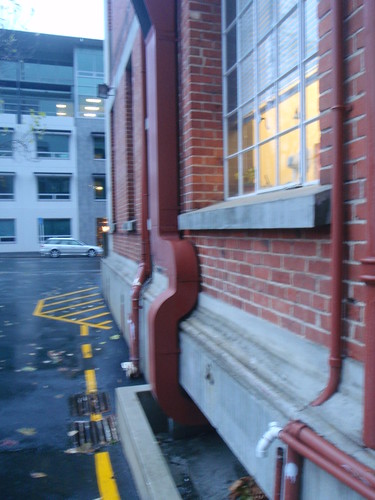
Right now I want nothing so much as to go home for Thanksgiving. Then Christmas. I want to eat meat and potatoes and squash, I want to wear flannel pajamas under flannel sheets, and I want to see snow piled outside my windows. I want to go skiing, and sit in the lodge after sipping hot chocolate while a fire roars in a stone hearth.
This things are not going to happen; at least not until those last two months of the year, when they usually happen. In New Zealand Christmas does not coincide with short days and long nights, which seems absurd and impossible (nevermind all that nonsense about first Christmases, and where they happened and when—I won’t have it), and they celebrate Thanksgiving rather half-heartedly in February. But watching the sun set around 5:30 has cued some seasonal clock within me, one that operates on a different level than my logic. So though the calendar says “May” my instinct says “November” and here I am, thinking about Thanksgiving.
I looked up the date of the winter solstice; in the southern hemisphere it falls around June 21st, which is the northern hemisphere’s summer solstice. I’ll be here for that, and four days later I’ll leave, and be thrown into a world where the days are beginning to shorten just as they’ll finally be lengthening here. It’s actually extremely disturbing.
‘Solstice’ comes from two Latin words which together translate as ‘stationary sun.’ But the sun is stationary relative to the vast planet—and assuming that you are sitting in one place on Earth’s surface. And maybe you should be; I told someone that I don’t believe people were meant to switch between the northern and southern hemispheres like this, for this in-between period that is longer than a mere vacation but shorter than forever. When you sit still and wait for it, you have balance; the balance of circadian and seasonal rhythms, even night and day, gradual change. But instead I’m whizzing around the planet like a gnat around a cow’s head, flying in and out of shadow at a delirium-inducing rate. Is it Thanksgiving yet?
This things are not going to happen; at least not until those last two months of the year, when they usually happen. In New Zealand Christmas does not coincide with short days and long nights, which seems absurd and impossible (nevermind all that nonsense about first Christmases, and where they happened and when—I won’t have it), and they celebrate Thanksgiving rather half-heartedly in February. But watching the sun set around 5:30 has cued some seasonal clock within me, one that operates on a different level than my logic. So though the calendar says “May” my instinct says “November” and here I am, thinking about Thanksgiving.
I looked up the date of the winter solstice; in the southern hemisphere it falls around June 21st, which is the northern hemisphere’s summer solstice. I’ll be here for that, and four days later I’ll leave, and be thrown into a world where the days are beginning to shorten just as they’ll finally be lengthening here. It’s actually extremely disturbing.
‘Solstice’ comes from two Latin words which together translate as ‘stationary sun.’ But the sun is stationary relative to the vast planet—and assuming that you are sitting in one place on Earth’s surface. And maybe you should be; I told someone that I don’t believe people were meant to switch between the northern and southern hemispheres like this, for this in-between period that is longer than a mere vacation but shorter than forever. When you sit still and wait for it, you have balance; the balance of circadian and seasonal rhythms, even night and day, gradual change. But instead I’m whizzing around the planet like a gnat around a cow’s head, flying in and out of shadow at a delirium-inducing rate. Is it Thanksgiving yet?
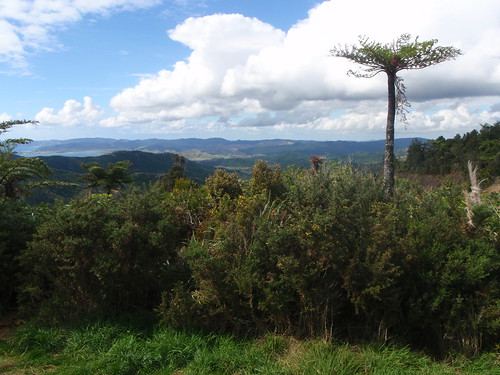
It is to do with trees
being amongst trees.
It is to do with tree-ferns:
mamaku, ponga, wheki.
Shelter under here
is so easily
understood.
You can see that trees
know how it is
to be bound
into the earth
and how it is to rise defiently
into the sky.
It is to do with death:
the great slip in the valley:
when there is nothing left
but to postpone all travel
and wait
in the low gut of the gully
for water, wind and seeds.
It is to do with waiting.
Shall we wait with trees,
shall we wait with,
for, and under trees
since of all creatures
they know the most
about waiting, and waiting
and slowly strengthening,
is the great thing
in grief, we can do?
It is always bleak
at the beginning
but trees are calm
about nothing
which they believe
will give rise to something
flickering and swaying
as they are: so lucid
in their knowledge of green.
-Dinah Hawken, 1995
09 May 2009
Today I got dressed in my sleeping bag--that's how cold it is inside our little flat, with its big windows and thin walls and no central heating. My breath condensed inside. The forecast was for snow, and our cockle-collecting field trip was cancelled due to inclement weather (the first time in seven years our professor has cancelled a field trip--we were all gathered outside the zoology building, bundled in raingear and sweaters, when we drove up in his SUV and blue and yellow fleece hat and told us we could go home). I was actually disappointed, because I had planned to bring a bag a squirrel away some cockles, aka little-neck clams, for steaming at home--the cockle beds we were going to were supposedly the largest in New Zealand? The world? I forget.
So that's what's happening down here. Welcome to the deep south.
So that's what's happening down here. Welcome to the deep south.
06 May 2009
05 May 2009
This morning, I got on a bus in Te Anau before the sun rose—which is not so much a testament to my ability to wake up early as to the sun’s ability to wake up late, here and now. I was returning from another three-day hike (or “tramp”, as they say here, or walk, if you prefer)—the Kepler Track, in Fiordland National Park, which is another Great Walk (“Great Walk” is secret code for “pretty easy, but still multi-day, hike”). Here’s a play-by-play from the last few days, with quotes from my journal and pictures and the ever-important eating regime:
Thursday night, while packing, to Sandra: “You don’t need to worry about Kari running out of food. Maybe, is Kari’s pack too heavy? Or, did Kari even bring an extra pair of pants? But I’ve got plenty of food.”
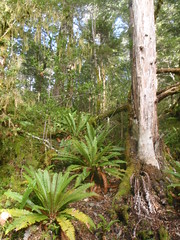
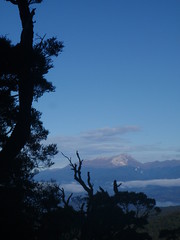
Saturday:
“The hut is huge and lovely for its simplicity: now I’m in the kitchen, by the woodstove, and around me people are speaking strange languages. I’m wearing two pairs of socks. The weather today was truly astounding—this morning the fog was heavy and thick over Lake Te Anau, but now it’s lifted, and we can see from the hut all the way down to the lake, and the mountains surrounding it.”
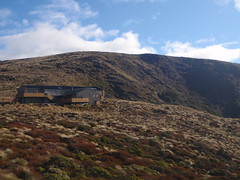
breakfast: dried apples; snacks: dried mango, Cadbury energy chocolate scroggin (energy chocolate was invented in New Zealand, and is apparently dark chocolate with some malt to make it sweeter. I like it because it comes in metallic red packaging with lightning bolts on it. Scroggin has raisins and nuts.); lunch: peanut butter and jelly sandwich, crackers with hummus; dinner: cold pasta with olive oil and salt and pepper, carrots, gorp 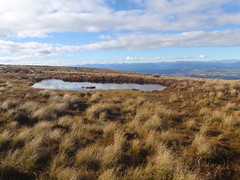
Sunday:
“I’m tenting tonight. I don’t know if that’s a good decision or a bad decision, but it’s mine, and I made it. My tent is set up outside on the damp grass with all the black flies that I hope will go away when the sun goes down.”
Thursday night, while packing, to Sandra: “You don’t need to worry about Kari running out of food. Maybe, is Kari’s pack too heavy? Or, did Kari even bring an extra pair of pants? But I’ve got plenty of food.”


“The hut is huge and lovely for its simplicity: now I’m in the kitchen, by the woodstove, and around me people are speaking strange languages. I’m wearing two pairs of socks. The weather today was truly astounding—this morning the fog was heavy and thick over Lake Te Anau, but now it’s lifted, and we can see from the hut all the way down to the lake, and the mountains surrounding it.”


“I’m tenting tonight. I don’t know if that’s a good decision or a bad decision, but it’s mine, and I made it. My tent is set up outside on the damp grass with all the black flies that I hope will go away when the sun goes down.”
breakfast: dried apples, peanut butter and jelly sandwich; snacks: dried mango, gorp; dinner: cold pasta, carrots, Backpacker’s Kitchen chocolate cheesecake (that almost sounds classy, doesn’t it?)
“After sleeping for two hours I wake up to have a fight with a pair of kea (alpine parrots) who are apparently trying to steal my tent stakes. The fight mostly consists of me slapping the side of the tent, then sticking my head out the door, taking flash photographs and saying “Why do you want my stakes? Don’t take my stakes” until the kea fly away.”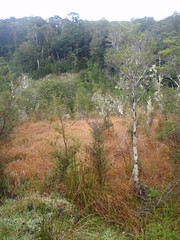
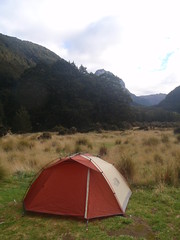
Monday:
“I have four blisters on my right foot—I think my biggest blister has little blisters inside of it, and at any rate both of my feet feel like they went through a meat tenderizer. So I’m stepping lightly.”
breakfast: dried apples; snacks: scroggin, dried mango, gorp; dinner: carrots, crackers with hummus
“That said, today worked out really well. A flock of kea woke me up, and I talked to them while packing up my ice-crisped tent.”
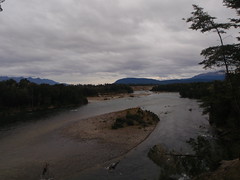
So there you go: my weekend in a (large) nutshell. Now it's back to the usual grind of schoolwork, cooked food, solid shelters, indoor activities. You appreciate it more.
“After sleeping for two hours I wake up to have a fight with a pair of kea (alpine parrots) who are apparently trying to steal my tent stakes. The fight mostly consists of me slapping the side of the tent, then sticking my head out the door, taking flash photographs and saying “Why do you want my stakes? Don’t take my stakes” until the kea fly away.”


breakfast: dried apples; snacks: scroggin, dried mango, gorp; dinner: carrots, crackers with hummus
“That said, today worked out really well. A flock of kea woke me up, and I talked to them while packing up my ice-crisped tent.”

28 April 2009
26 April 2009
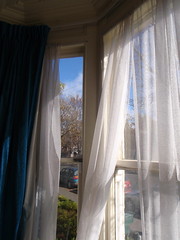
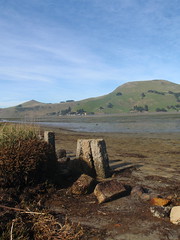
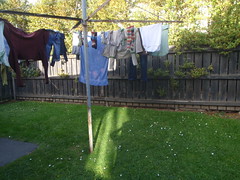
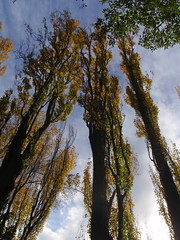
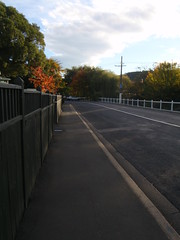
Subscribe to:
Posts (Atom)

